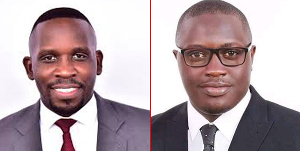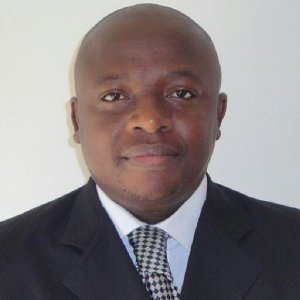President Mahama says it is not true government seeks to discriminate against the people of the Ashanti Region as regards the National Health Insurance Scheme.
He says the choice of Ashanti Region for implementation of the National Health Insurance Capitation pilot was informed by its diversity and population, and the likelihood of the pilot scheme yielding findings that would guide future decisions.
President Mahama has, therefore, asked the people of Ashanti and all service providers to bear with Government and trust its intentions.
The President expressed the sentiment in an address to open the 54th Annual Session of the West African College of Surgeons in Kumasi.
Radio Ghana's correspondent, John Yeboah, reports that President Mahama, whose speech was delivered by the Ashanti Regional Minister, Eric Opoku, used the platform of the conference to address a subject of concern to Ghanaians and in particular residents of the Ashanti Region, which is the future of the National Health Insurance Scheme.
He said the Minister of Health has tasked a team of technocrats and stakeholders to review the available results from implementation of the pilot capitation scheme.
As soon as their recommendations are ready, Government will come out with a policy directive or the future of the NHIS capitation.
President Mahama restated the commitment of his administration to improving upon the NHIS.
He said though it is costly, his administration is working very hard to ensure the sustainability of the scheme.
The Asantehene, Otumfuo Osei Tutu II, who was the Guest of Honour, called on Governments in the West African sub-region to take steps to remove financial barriers to health services by implementing insurance systems.
He noted that, the NHIS in Ghana is yet to cover all surgical procedures though the majority of common conditions are covered under the existing scheme.
Otumfuo Osei Tutu II also challenged the West African College of Surgeons to increase efforts at churning out larger numbers of surgeons to alleviate the huge surgical burden.
The Minister of Health, Madam Sherry Ayittey, emphasized the need for middle level surgical manpower to augment the work of highly specialized surgeons.
According to her, the training of such a cadre must be under the direct supervision of experienced surgeons, and their practice regulated to ensure safety of the patient.
They should undertake relatively simpler tasks while surgeons tackle the more challenging ones.
The President of West African College of Surgeons, Professor Kofi Yangni-Angate, announced the construction of a permanent secretariat in Lagos Nigeria in July this year.
The five day conference on the theme, “Systems Strengthening For Improved Health Services” presents an opportunity for leaders and representatives of surgical colleges from the sub-region and around the world to hold business meetings to chart a new future for surgery based on cooperation.
General News of Monday, 3 March 2014
Source: GBC













